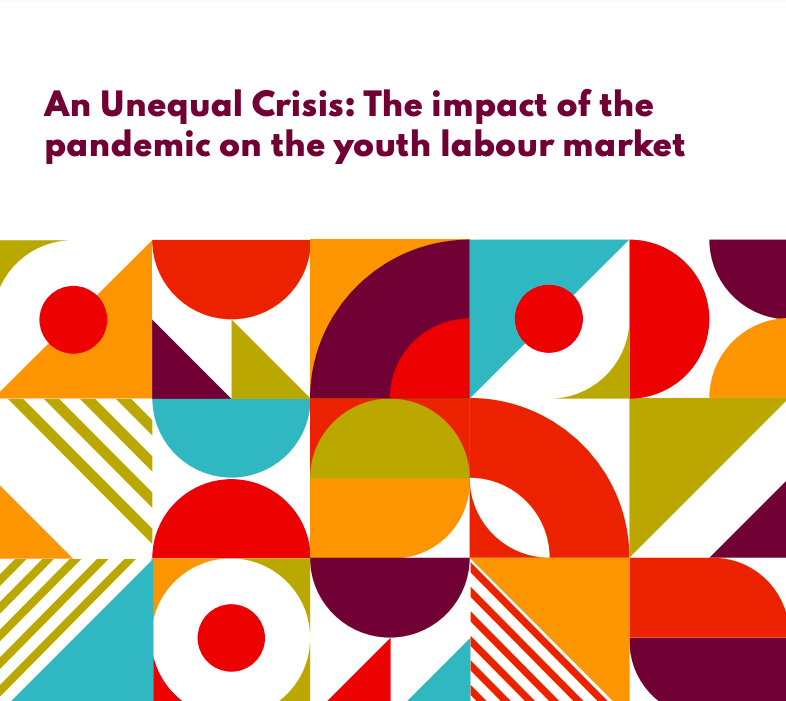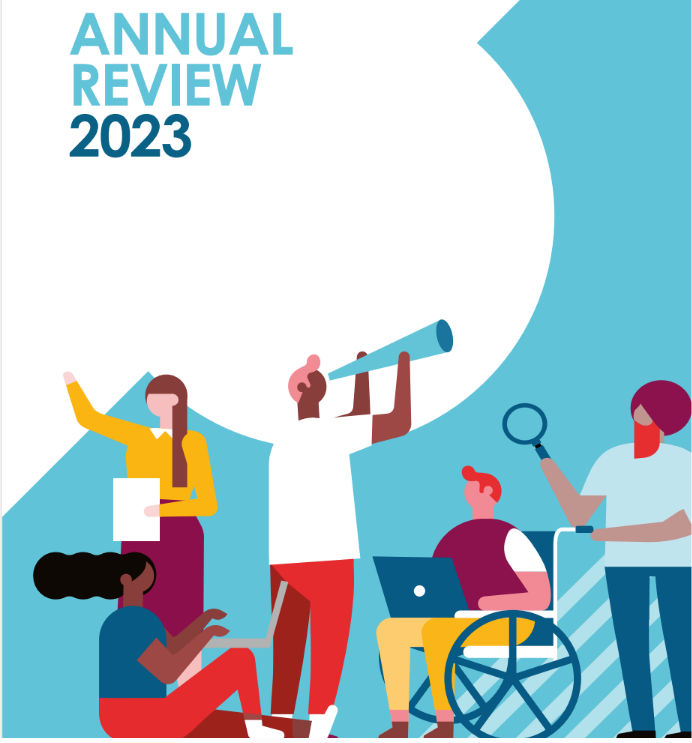Young people are being hardest hit by the downturn in the labour market, says An Unequal Crisis: The impact of the pandemic on the youth labour market, a new report published by Youth Futures Foundation today (12 February 2021).
Research carried out by the Institute for Employment Studies (IES) found that under 24-year-olds account for almost half of the total fall in employment, with those from ethnic minority backgrounds disproportionately affected. Young people typically work in occupations that have been impacted most by the pandemic making them most vulnerable to being laid off. At the same time, the fall in hires and more people chasing fewer jobs means young people are struggling to enter the job market.
- Young people account for 46% of the overall fall in employment
- Young people are bearing the brunt of lockdown – 47% of people furloughed aged under 24
- The fall in employment is four times higher for young Black people and nearly three times higher for young Asian people
- Almost 200,000 young people who are out of work have been unemployed for over six months
Jamie Gilliam is 22 and lives with his parents in Romford, Essex. He graduated from King’s College, London, in June last year with a first-class politics degree. Jamie was looking for work in the field he loves, in parliament or with a charity, but despite broadening his search to administrative roles in a variety of sectors, countless applications and 100s of interviews, he’s still struggling to find a job.
Jamie says:
‘You’re told if you work hard and get good grades then you’ll have good career prospects. My expectations have always been realistic – I’m looking for an entry-level job – but there are fewer opportunities because of the pandemic. Employers say they’re unable to give you feedback because they’ve received 200 or 300 applications, so it’s difficult to know how to improve. It’s like the door is shut and nobody tells you how to unlock it.’
One of the report’s authors, Director of the Institute for Employment Studies, Tony Wilson, says:
‘Young people are more likely to be entering the job market, like Jamie, or changing job, so they are most affected by the drop in hires. They’re also more likely to have jobs in hospitality, tourism, leisure and childcare which have been hit hard by lockdowns. Not only is it harder for young people to get a job because there are fewer vacancies, but they’re also more likely to have lost their jobs because they are in less secure work or subject to the ‘last in, first out’ principle.’
Only one in six 16-17-year-olds are currently in employment – the lowest rate ever. The figures are mitigated to an extent, says the report, because many young people have opted to stay in education to postpone entering the job market. However, those from the most disadvantaged backgrounds who would have relied on part-time work to support their studies, are likely to suffer the economic impact in the longer term and miss out on the valuable work experience to help them get a job in the future.
Youth Futures Foundation Director of Impact and Evidence, Chris Goulden, commented:
‘This report lays bare the immediate impact of the pandemic on young people’s job prospects in the short term, but also highlights the more significant labour market ‘scars’ of long-term unemployment which affect future job stability, income levels and wellbeing. Inevitably, the most disadvantaged and discriminated against are most profoundly affected. There are alarming implications for our future economy and any ambitions to ‘level up’ our society.’


